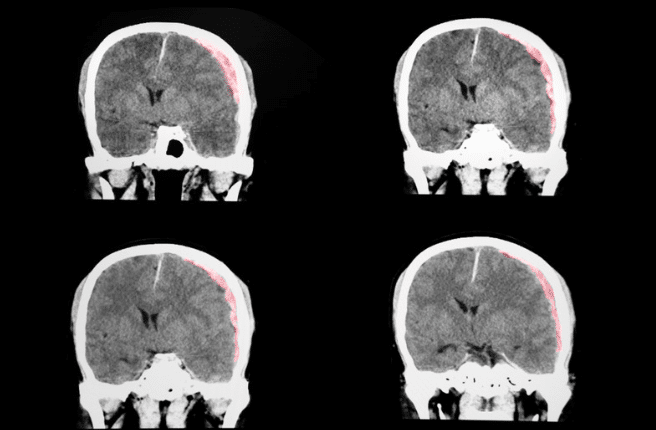What Conditions Qualify for Social Security Disability?
Many people considering applying for Social Security disability benefits have questions like, “What is considered a disability?” or “What conditions can I get Social Security disability for?” That’s not exactly how the Social Security Administration (SSA) analysis works.
While there is a detailed listing of impairments that may qualify a person for Social Security disability, you may also qualify with a condition that isn’t listed. Or, you may qualify with a combination of listed conditions, even though you don’t meet the criteria for either one separately.
What is Considered a Disability?
The SSA considers a person to be disabled if a medical condition or combination of medical conditions prevents them from engaging in substantial gainful activity (SGA) for at least 12 months.
The SSA defines SGA as the ability to earn a certain amount of money on a monthly basis. In 2025, that cut-off is $1,620/month.
Social Security’s Listing of Impairments
The listing of impairments, commonly referred to as the Blue Book, contains detailed listings in fourteen categories. They are:
Musculoskeletal Disorders
Musculoskeletal disorders are among the most common reasons people receive Social Security disability benefits, particularly back problems.
Of course, many people have back pain and other musculoskeletal conditions and are able to work. The SSA only considers you disabled if you can’t engage in SGA because of your medical condition. That’s determined in one of two ways. First, the SSA will look at the Blue Book listing for your condition, if there is one.
Some common listed musculoskeletal include:
- Spinal problems caused by compromise of a root nerve
- Spinal problems caused by lumbar spinal stenosis
- Abnormality of a major joint
- Amputation
- Soft tissue injury or abnormality
- Some non-healing or complex fractures
If your condition isn’t listed or you don’t meet the criteria, the SSA will go on to evaluate whether there is work you can do with your medical limitations, based in part on factors like your age, educational level and past work experience.
Special Senses and Speech
This category includes blindness, loss of hearing, and loss of ability to communicate through speech. Both visual impairment and hearing loss are assessed with very specific measures. The listing for loss of speech requires “inability to produce by any means speech that can be heard, understood, or sustained.”
If a person meets the SSA listing criteria for blindness, the SGA threshold is increased. In 2025, the SGA cut-off for a blind application is $2,700/month, compared with $1,620/month for other applicants.
Respiratory Disorders
Respiratory disorders listed in the Blue Book include:
- Asthma
- Cystic fibrosis
- Bronchiectasis
- Chronic pulmonary hypertension
- Lung transplant
- Respiratory failure
As with other categories, it is important to remember that you may still qualify for Social Security disability benefits if your medical condition is not listed, or if you don’t meet the listing criteria for the condition.
Cardiovascular System
Any heart condition that prevents you from earning a living could qualify you for Social Security disability. Some cardiovascular conditions included in the Blue Book include:
- Chronic heart failure
- Ischemic heart disease
- Recurrent arrhythmia
- Symptomatic congenital heart disease
- Heart transplant
- Aortic aneurysm
- Chronic venous insufficiency
- Peripheral arterial disease
Digestive Disorders
Like other types of conditions, a digestive disorder may or may not qualify you for Social Security disability benefits, depending on the degree of limitation the condition causes. Conditions listed with specific criteria in the Blue Book include:
- Gastrointestinal hemorrhaging
- Chronic liver disease
- Inflammatory bowel disease
- Intestinal failure
- Weight loss due to any medical condition
- Transplant of the:
- Liver
- Small intestine
- Pancreas
Genitourinary Disorders
While the category is much broader, the Blue Book listings for genitourinary disorders are focused on serious kidney-related conditions, including:
- Chronic kidney disease
- Nephrotic syndrome
- Complications of kidney disease
The SSA uses different criteria to evaluate chronic kidney disease depending on whether the condition requires dialysis, requires a transplant or involves impairment of kidney function.
Hematological Disorders
Listed hematological disorders include:
- Hemolytic anemias, including sickle cell disease and thalassemia
- Disorders of thrombosis and hemostasis
- Bone marrow failure
- Hematological disorders treated by bone marrow or stem cell transplant
- Repeated complications of hematological disorders
Skin Disorders
Most skin conditions won’t impair your ability to work, but when they do the SSA may approve Social Security disability benefits. Skin conditions listed with specific criteria for approval include:
- Genetic photosensitivity conditions such as xeroderma pigmentosum
- Burns
- Chronic conditions of the skin or mucous membranes such as chronic skin lesions
Endocrine Disorders
Endocrine disorders cause hormonal imbalances, some of which can be debilitating. Endocrine conditions specifically addressed in the Blue Book include:
- Pituitary gland disorders
- Thyroid gland disorders
- Parathyroid gland disorders
- Adrenal gland disorders
- Pancreatic gland disorders, including diabetes mellitus
Congenital Disorders Affecting Multiple Body Systems
The only condition the SSA evaluates under this set of criteria is non-mosaic Down Syndrome.
Neurological Disorders
The Blue Book contains listing and criteria for a wide range of neurological conditions, including:
- Epilepsy
- Vascular insult to the brain
- Benign brain tumor
- Parkinsonian syndrome
- Cerebral palsy
- Spinal cord disorders
- ALS
- Myasthenia gravis
- Muscular dystrophy
- Neurodegenerative disorders of the central nervous system, such as Huntington’s disease
- Traumatic brain injury (TBI)
- Coma or persistent vegetative state
- Motor neuron disorders other than ALS
Mental Disorders
The SSA provides a long list of mental disorders that may qualify a person for Social Security disability benefits, along with the criteria they consider. However, as with physical health conditions, any diagnosed medical condition that prevents you from working may qualify you for disability.
The listed conditions include:
- Neurocognitive disorders
- Schizophrenia spectrum and other psychotic disorders
- Depressive and bipolar disorders
- Intellectual disorder
- Anxiety and obsessive-compulsive disorder
- Somatic symptoms
- Personality and impulse control disorders
- Autism spectrum disorder
- Neurodevelopmental disorders
- Eating disorders
- Trauma and stressor related disorders
Cancer
Most cancers are evaluated under cancer-specific criteria set forth in this category, including:
- Soft tissue cancers of the head and neck
- Skin cancers
- Soft tissue sarcoma
- Lymphoma
- Leukemia
- Multiple myeloma
- Cancer of the salivary glands
- Cancer of the thyroid gland
- Breast cancer
- Skeletal system sarcoma
- Maxilla, orbit or temporal fossa
- Cancer of the nervous system
- Lung cancer
- Pleura or mediastinum
- Cancer of the esophagus or stomach
- Cancer of the large intestine
- Liver or gallbladder cancer
- Pancreatic cancer
- Kidney, adrenal glands or ureter
- Urinary bladder
- Cancer of the female genital tract
- Cancer of the prostate gland
- Testicle cancer
- Penile cancer
- Cancers with the primary site unknown
- Cancers treated by bone marrow or stem cell transplantation
- Malignant melanoma
A few types of cancer are assessed under the category for the impacted organ or body system. An experienced Social Security disability benefits advocate can explain in greater detail how your particular type of cancer would be evaluated.
Immune System Disorders
Some immune disorders are evaluated under the body systems they impact, while others have criteria spelled out in this section of the Blue Book. These include:
- Systemic lupus erythema (SLE)
- Systemic vasculitis
- Systemic sclerosis (scleroderma)
- Polymyositis and dermatomyositis
- Undifferentiated and mixed connective tissue disease
- Immune deficiency disorders other than HIV
- Inflammatory arthritis
- Sjogren’s syndrome
- HIV
Get the Help You Need with Your Social Security Disability Claim
Whether your Social Security disability claim is evaluated under one of the many Social Security Blue Book listings or the more holistic approach, the process can be complicated. An experienced disability benefits advocate can help ensure that you have the right documentation to support your claim as fully as possible and give you the best chance of approval.
For help with an initial claim or a Social Security disability appeal, call 800-800-3332 right away or click here now.







